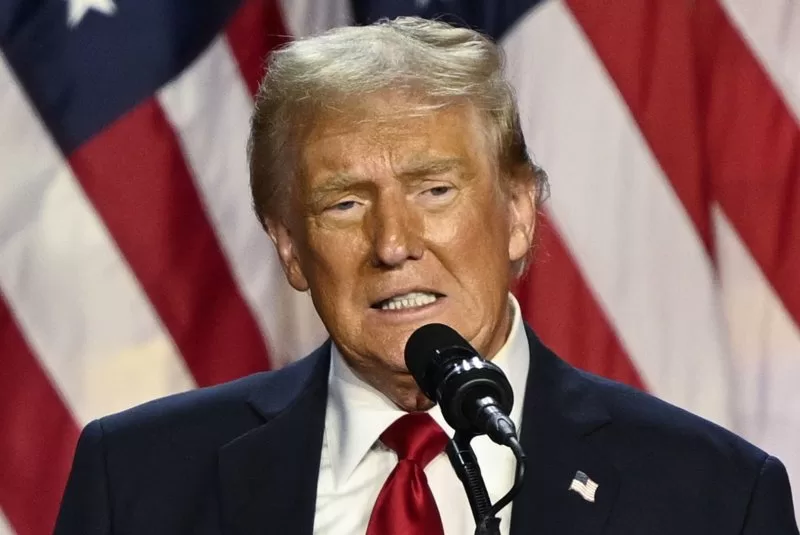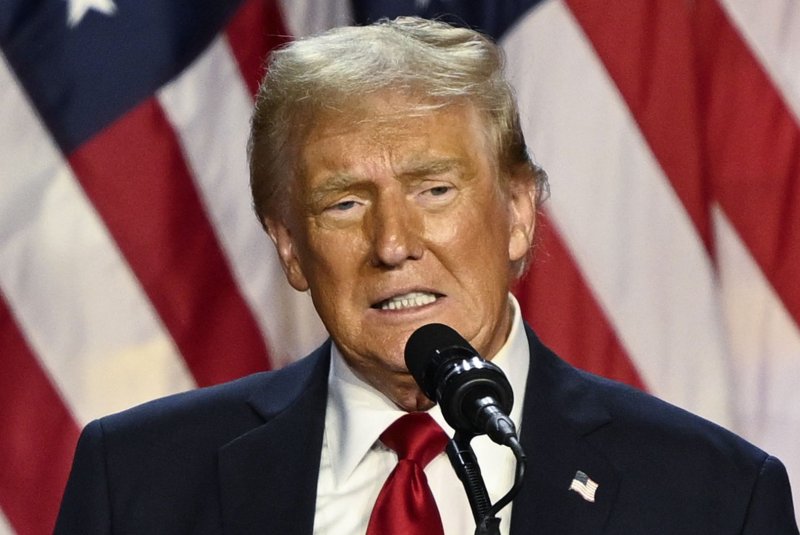1 of 5 | A decision on if and when President-elect Donald Trump will be sentenced in the hush money case against him in New York is coming soon while his other legal challenges loom. Photo by Joe Marino/UPI |
License PhotoNov. 18 (UPI) — A decision on if and when President-elect Donald Trump will be sentenced in the hush money case against him in New York is coming soon while his other legal challenges loom.
Trump’s sentencing has been on hold since New York State Supreme Court justice Juan Merchan paused the case in September, awaiting the election. The Republican candidate turned incoming president is currently slated to appear in court on Nov. 26.
That case is just one in a list of legal woes that have followed Trump since he left the White House in 2021. Here is a look at where the cases against him stand as his inauguration approaches.
New York sentencing
Judge Merchan pushed off the decision on how to move forward with the case for another week. He is slated to make a decision on Nov. 19.
The president-elect was convicted in May on 34 counts related to falsifying business records to cover up an affair with adult film actress Stormy Daniels.
The sentencing phase of the proceedings has remained on hold as Trump campaigned for the presidency. The original sentencing date was July 11, days before the Republican National Convention. It was then moved to Sept. 18 before Merchan postponed it until after the election.
As it stands, Trump is expected in court on Nov. 26.
The hush money case was the first brought against Trump after he left the White House. He is the first former president to be criminally convicted and will be the first person convicted on felony charges to serve in the White House.
Classified documents
In Florida, the case over Trump’s alleged mishandling of national defense secrets remains on appeal after being dismissed by U.S. District Judge Aileen Cannon.
Special prosecutor Jack Smith appealed Cannon’s decision hours after it was made. She tossed the case after determining Smith was improperly appointed to prosecute it, according to her interpretation of the Appointments Clause of the Constitution.
That determination was not Cannon’s alone. U.S. Supreme Court Justice Clarence Thomas laid the argument out days before Cannon made her decision in July.
“A private citizen cannot criminally prosecute anyone, let alone a former President,” Thomas wrote.
Thomas’ adjoining opinion was included in the U.S. Supreme Court’s ruling on presidential immunity. However, he went beyond weighing in on the immunity decision by sharing his thoughts on a matter such as the appointment of special prosecutors.
Election interference and Jan. 6 Capitol riot
In Washington, U.S. District Judge Tanya Chutkan granted Smith’s request on Friday for a new Dec. 2 deadline for the prosecution to file a status report or inform the court of its deliberations. This decision vacates all other pretrial proceedings as the government assesses how to move forward following Trump’s election.
The case in Washington over Trump’s role in a scheme to overturn the results of the election and inciting a riot at the U.S. Capitol has remained on hold for much of 2024.
Trump faces four criminal charges: conspiracy to defraud the United States, conspiracy to obstruct an official proceeding — the certification of the election, obstruction of and attempt to obstruct an official proceeding and conspiracy against rights — the rights of voters.
The initial pause came as Chutkan waited for the U.S. Supreme Court to rule on Trump’s claim of presidential immunity.
The high court affirmed Trump’s claim, ruling that he is immune from being prosecuted for acting in his role as president and exercising the authority granted by his core constitutional powers. He is also presumed to be immune from prosecution when performing official acts.
The presidential immunity decision gives Trump — and other presidents — broad protection from legal action taken against them for things they did while in office.
Election subversion
Trump and more than a dozen co-defendants are waiting to see what happens next in Fulton County, Ga., in the election conspiracy case against them.
The RICO case against Trump and 19 others alleges that they undertook a broad conspiracy to undermine the results of the 2020 presidential election in Georgia.
The scheme included sending a fake slate of electors to change the results of the election in favor of Trump, pressure state lawmakers to overturn the results of the election and soliciting Secretary of State Brad Raffensperger to unlawfully participate in changing the results of the election.
One of the defendants, Michael Roman, appealed to have Fulton County District Attorney Fani Willis removed from the case due to her romantic relationship with prosecutor Nathan Wade. Willis appointed Wade to prosecute the case. Trump alleges that she and Wade benefited financially from Wade’s appointment and his prosecution, creating a conflict of interest.
Willis and Wade testified at length about their relationship during a hearing in February. During separate testimonies they confirmed that their relationship ended prior to the indictment of Trump and 19 others.
Judge Scott McAfee ruled that Willis can remain on the case after Wade resigned. Trump appealed this decision in May and it remains on appeal.
Willis was reelected as Fulton County district attorney last week.

